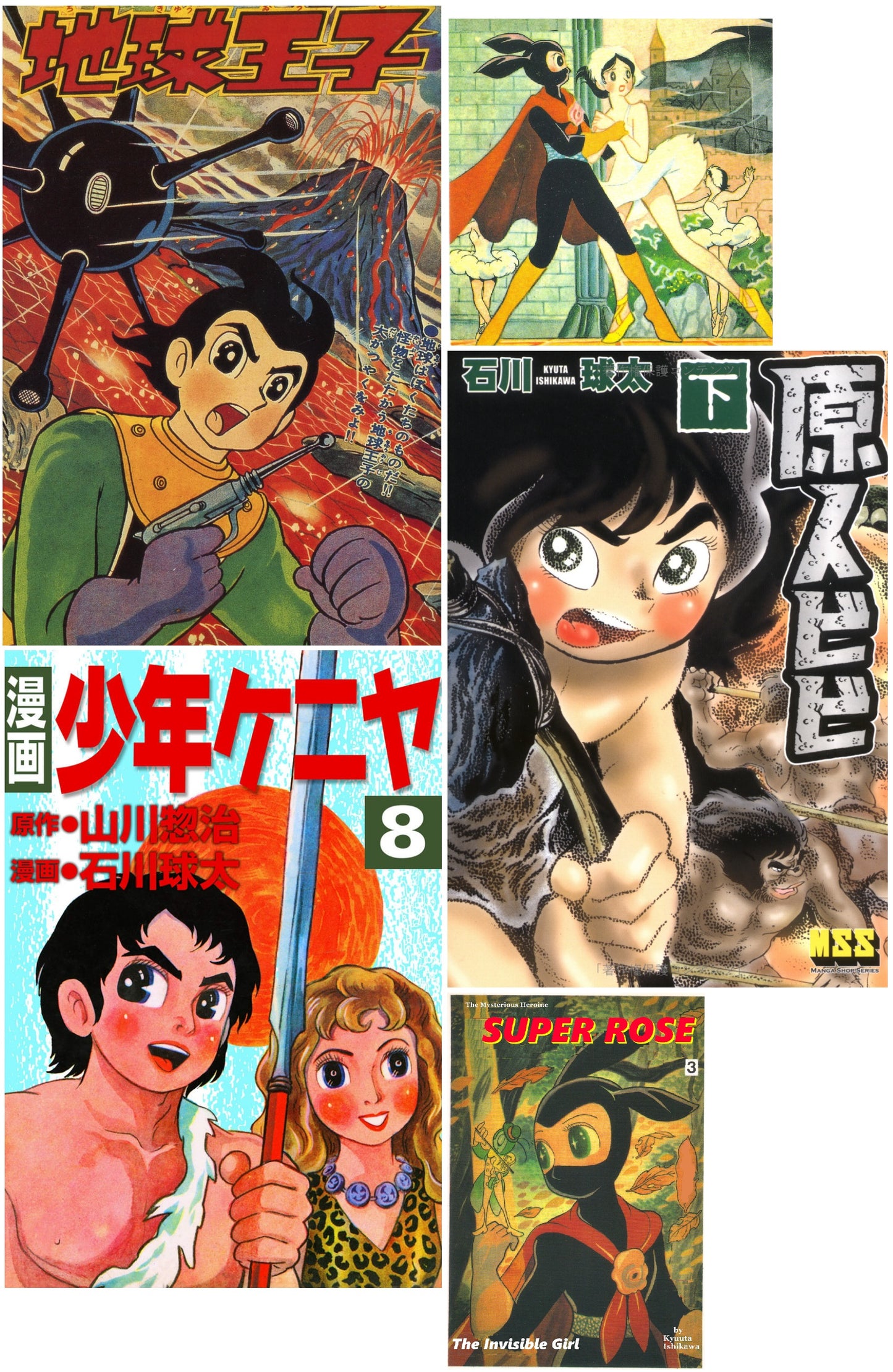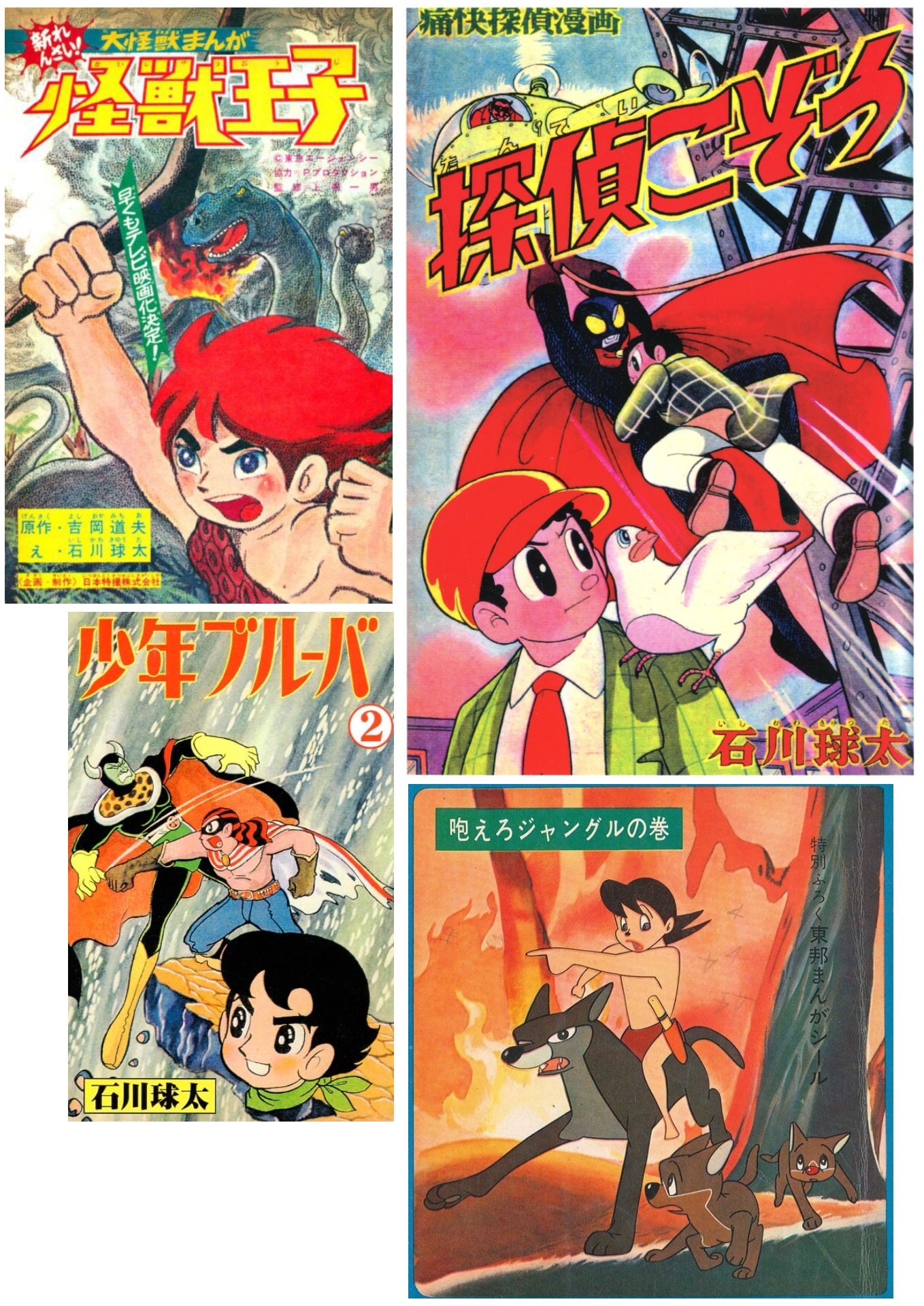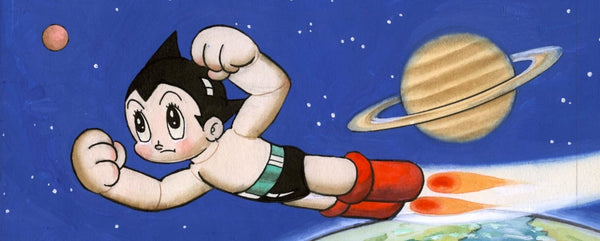Kyuta Ishikawa
Biography | Kyuta Ishikawa
Biography | Kyuta Ishikawa
Couldn't load pickup availability
Kyūta Ishikawa | 石川球太 (1940–2018) was a Japanese mangaka whose impressive career spanned from the mid-1950s into the early 2000s.
Born in the Isogo district of Yokohama, he began drawing manga at a young age and was already submitting work to publishers as a teenager. He made his professional debut, in 1955, in Manga Shōnen , a magazine that played a crucial role in shaping postwar manga and was closely associated with Osamu Tezuka, the ‘God of Manga’.
Though not formally part of Tezuka’s circle, Ishikawa’s early work clearly reflects Tezuka’s influence, especially in character design and storytelling style.
Ishikawa’s most famous work is Gaoh ,the story of a wild child raised by animals, a theme that combines intensity with a raw depiction of survival and instinct. The series was notable at the time for its dramatic flair and moral complexity and stood out amongst other shōnen titles of the 1960s.
In Europe and the United States, Ishikawa is best known for Super Rose, a manga that introduced one of the first female superheroes in Japanese comics.
Throughout his career, Ishikawa worked with a range of major publishers and contributed to leading magazines such as Weekly Shōnen Magazine and Weekly Shōnen Sunday.
His almost endless catalogue of work includes Primal Man Bibi, Genghis Wolf and SF Adventure Sirius, among others … and in addition to his own creative output, he founded the Q-Production studio, where he mentored emerging artists including Jirō Taniguchi, who would go on to become one of the most respected manga authors of his generation.
One of Ishikawa’s most personal and reflective works is Isogo Monogatari, a semi-autobiographical series of short stories about his youth in the Isogo district of Yokohama. These stories were originally published in Bessatsu Shōnen Natsumanoh (1993) and reissued in full by Apple BOX Create.
In this collection, Ishikawa revisits his childhood and early artistic aspirations, while also acknowledging the formative influence of Osamu Tezuka’s work on his development. Both the visual style and narrative tone reflect a deep nostalgia, while offering subtle references to mid-century manga culture. Isogo Monogatari captures the atmosphere of 1950s Japan with remarkable precision and includes numerous allusions to contemporary manga magazines and characters of the time.
Ishikawa continued producing new work and overseeing reprints of his older material well into the 1990s and early 2000s. He died on October 15, 2018, at the age of 78, leaving behind a huge body of work that bridges shōnen adventure, spectacular fiction, and personal memoir !
Share






